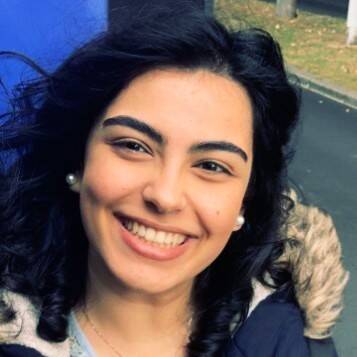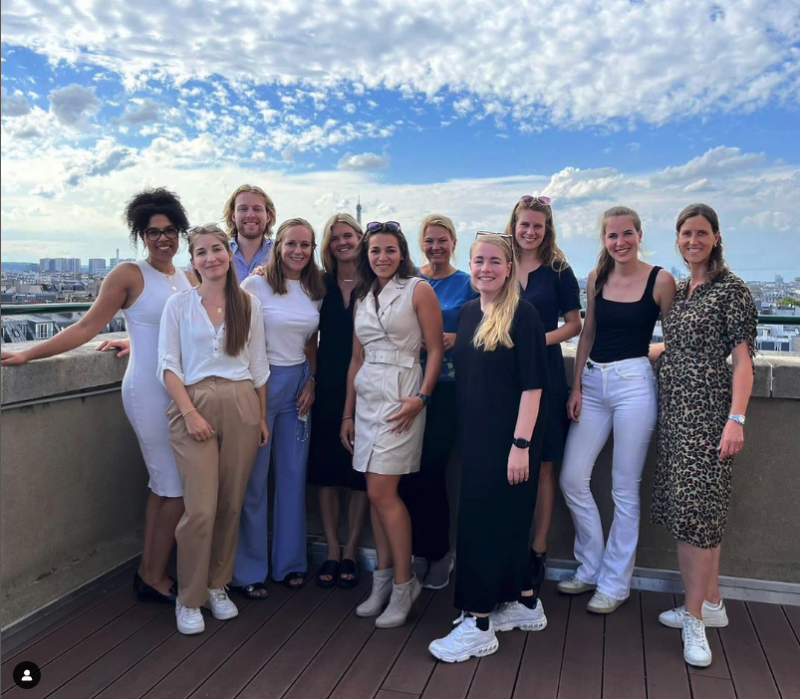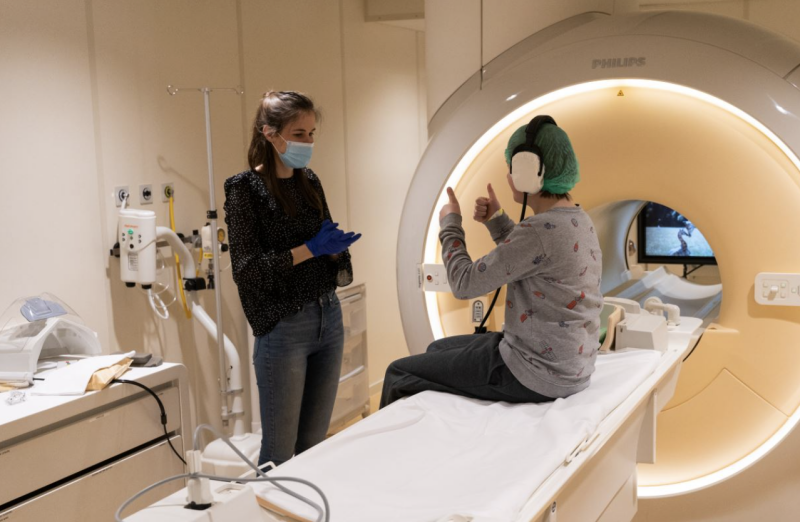
Dutch Youth on Smartphone Policies in Secondary Schools
Since January 2024, the rules regarding smartphone use in classrooms have become stricter in secondary schools. But how do Dutch youth actually experience these changes? The new public report, “Unplugged and Unheard: Dutch youth on smartphone policies in secondary schools" provides in-depth insights into students' experiences.
The study, conducted across 170 students, reveals that most Dutch young had little to no influence on the creation of the new policies. Only 17% of students were actively involved, for example, through surveys or student councils. This limited input appears to be a key factor in their satisfaction with the rules. Students who did have influence reported being more satisfied with the policies, even when the rules were strict.
Autonomy Is Crucial for Support Among Youth
The study found that the level of involvement is more important for acceptance of the rules than their strictness. When young people are involved in decision-making, they feel more heard and are more likely to accept the rules. Therefore, the researchers advocate for systematically involving students in policy development and offer concrete recommendations, such as the FINE-framework, to improve smartphone policies in schools.
Read the full report for valuable insights and practical tips on creating smartphone policies that benefit both students and teachers.
The research presented in the public report, was made possible by a Starter Grant awarded to Dr. Jana Vietze and Dr. Michelle Achterberg, as well as an NWO VENI grant awarded to Dr. Michelle Achterberg.

Authors Dr. Imke (E.C) Brummer, Postdoc Educational Sciences, DPECS (left) and Dr. Michelle Achterberg, Assistant Professor Youth & Family, DPECS (right) holding the public report.
NWO Veni Grant
Michelle's research proposal "Defining sensitive windows in dealing with social rejection and its significance for adolescent well-being" has been awarded with a Veni Grant, a person-specific scientific grant from NWO for promising scientist.
Michelle: ‘'Social rejection is one of the most challenging experiences for children and can have long-lasting negative impact on their well-being. Scientists currently do not understand why some children are more affected by social rejection than others. With the data collected in this Veni-project, I will be able to investigate the social development of children for 10 ongoing years (7 to 17 years old). Using brain imaging techniques in combination with daily questions through smartphones, I aim to discover which children are most affected by social rejection, to ultimately determine how we can best facilitate social development of these children.''
Interdisciplinary meeting at the KNAW Trippenhuis
On Thursday November 16th 2023, we hosted the symposium “An interdisciplinary perspective on developmental sensitivities in dealing with social rejection” at the KNAW Trippenhuis. Participants from ten different universities and organisations with various backgrounds and disciplines joined to discuss with their research, vision and ideas on developmental sensitivities in dealing with social rejection. Leading scholars from various fields gave an overview of their research, followed by interactive brainstorm sessions with innovative live-drawn visualisations. The successful event was supported by the KNAW Early Career Partnership.
Michelle: I really enjoyed the interdisciplinary meeting! There was a very interactive, inspiring and interdisciplinary atmosphere and the keynote presentations gave an interesting overview of insights into developmental sensitivities to social rejection from various disciplines. The keynote presentations and outcomes of the brainstorm sessions were summarised in visual notes (see www.so-rebelresearch.com/knaw-day), which were very insightful and will help me to further determine future research and impact agendas.

Caroline Elkhoury started as labmanager

On November 1st, Caroline Elkhoury started as the SO-REBEL Research Labmanager.
Caroline has experience with our studies as research assistant on the L-CID project and we are excited that she will continue to support us as Labmanager.
Simone Dobbelaar promoted to Doctor
On October 26th 2023, PhD student Simone Dobbelaar successfully defended her thesis and was officially promoted to Doctor! Her supervision team consisted of Prof. dr. Eveline Crone, Dr. Anna van Duijvenvoorde and our own Dr. Michelle Achterberg. Simone was SO-REBELS first PhD student and we are beyond proud of her.
For her PhD project, she investigated how children over the years respond to social evaluation (approval and rejection of another) and how this behaviour is related to their social competence (the ability to achieve social goals for yourself and others). How aggressive or pro-social do children act after receiving feedback? How is this behaviour related to other factors, e.g. parents' parenting style? And what brain processes play a role in this? You can read all about it in Dr. Dobbelaars dissertation or in our publications.

Dr. Yara Toenders started as Healthy Start Convergence Fellow
October 2023, Dr. Yara Toenders started as Healthy Start Convergence Fellow on Ambition Project "Mental Well-being in Youth" under supervision of Dr. Danielle Remmerswaal and Dr. Michelle Achterberg.
The mental well-being of our current generation of young people is under pressure: 13-25% of Dutch young people (12-25 years) suffer from mental health problems. Reduced mental well-being can have long-lasting negative consequences, such as dropping out of school, reduced physical health and increased inequality. What can schools do to promote mental well-being among young people? Which educational programs are already being used to promote mental well-being and resilience and which elements of these interventions are effective? In the upcoming four years, Yara will investigate what is needed to make social-emotional development a structural part of the education of children and young people.

Ann Hogenhuis started as PhD student

September 2023, Ann Hogenhuis started her PhD project "Social Self-Regulation in the Brain and Everyday Life" under supervision of Dr. Michelle Achterberg and Prof. Dr. Loes Keijsers. Anns project is embedded in the interdisciplinary GUTS project. In the upcoming four years, she will study the self-regulation mechanisms of youth to understand how children grow up in an increasingly complex society using both lab controlled experimental fMRI and ecologically valid experience sampling methods (ESM).
J.C. Ruigrok Prize for behavioral sciences
On July 7th 2023, Michelle received the J.C. Ruigrok prize for behavioural sciences, awarded by the Koninklijke Hollandse Maatschappij der Wetenschappen (KHMW).
KNAW Early Career Partnership
Michelle is one of the ten researchers that have been awarded with a KNAW Early Career Partnership to organize an interdisciplinary meeting. With the KNAW Early Career Partnership grant, she will organize the meeting "An interdisciplinary perspective on developmental sensitivities in dealing with social rejection" on November 16, 2023.
The theme of the meeting is dealing with social rejection, which we will highlight from different perspectives and disciplines. Keynote speakers are Prof. dr. Dr. Eveline Crone, dr. Daphne van de Bongardt, Prof. dr. Dr. Patti Valkenburg; Dr. Amy Orben and Prof. Dr. Arne Popma.
EUR Research Prize 2022

In recognition of her "outstanding academic performance" and "the way her innovative ideas leverage impact in society at large", Michelle received the EUR Research Prize on November 8th 2022 at the 109th Dies Natlis.
The Research Prize is awarded to a promising researcher at Erasmus University Rotterdam (EUR) who has performed exceptional research and is just embarking on a research career. Michele: "I am incredibly honoured to have been selected out of many excellent candidates within the EUR".
Pre-conference workshop Flux 2022
In September, we organised the flux pre-conference workshop " The Developmental Neuroscience Cycle: from research design to societal impact" in Paris.
When conducting developmental neuroscience research, we all face similar challenges, but these difficulties are rarely reflected in our scientific papers. Questions such as, how to balance between the perfect research design and feasibility? How to manage the data in such a way that it is open and safe? How to translate science to a broader public without being too unnuanced?
Pre-pandemically, these kinds of experiences were sometimes shared at the coffee machine or during lunch, but in current times we often have to solve these challenges in solitude.
During this one-day preconference workshop, we wanted to reflect upon several challenges (and opportunities!) that we have experienced in running longitudinal studies. Together with the Flux community, we had interactive discussions on what practical, logistical, and creative solutions we as developmental neuroscientists have for the challenges we concur in our research field.

VNOP Dissertation Award 2022
In May 2022, Michelle received the Dutch Association of Developmental Psychology (VNOP) dissertation prize for my research on social emotion regulation in children.
The jury stated: "Her doctoral research is impressive. Not only in terms of the number of participants and the range of methods used, but also in terms of the innovative insights she describes in her research. Moreover, it is developmental psychology pur-sang, using a longitudinal design and combining the contribution of genes and environment in studying social emotion regulation."
L-CID Symposium at OHBM 2022
Our Leiden-CID symposium was selected for the Organisation of Human Brain Mapping (OHBM) meeting in Glasgow! The symposium included 4 speakers that presented their recent work based on data collected with the Leiden-CID study.
Back to the scanner: brain science in times of corona
Many neuropsychologists use brain imaging techniques, often facilitated in the hospital. At the start of the pandemic, the rules for visiting the hospital became stricter and a large amount of psychology research looked as though it would fall through. Fortunately, PhD students Simone Dobbelaar and Lina van Drunen were able to develop good protocols to continue our work for L-CID. Leiden University made a reconstruction of their way "back to the scanner"

Open Science Award 2021
In 2021, Michelle was one of the winners of the Convergence Health and Technology Open Research Awards 2021, which was a collaborative effort between the Convergence Alliance, Rotterdam R.I.O.T. Science Club, Open Science Community Rotterdam, and Open Science Community Delft.
These awards are aimed at rewarding researchers who are adopting open research practices in healthcare and technology. Open research practices improve transparency, openness, reproducibility, and replicability, essential to achieving quality research.
DNM PhD Thesis Prize 2021
On June 10 2021, Michelle received the prize for best dissertation from the Dutch Neurofederation, the network of Dutch neuroscientists, for her thesis 'Like me, ore else...'. Achterberg obtained her doctorate cum laude from the Gravitation Program 'Samen Uniek' of the Leiden Consortium on Individual Development (L-CID.